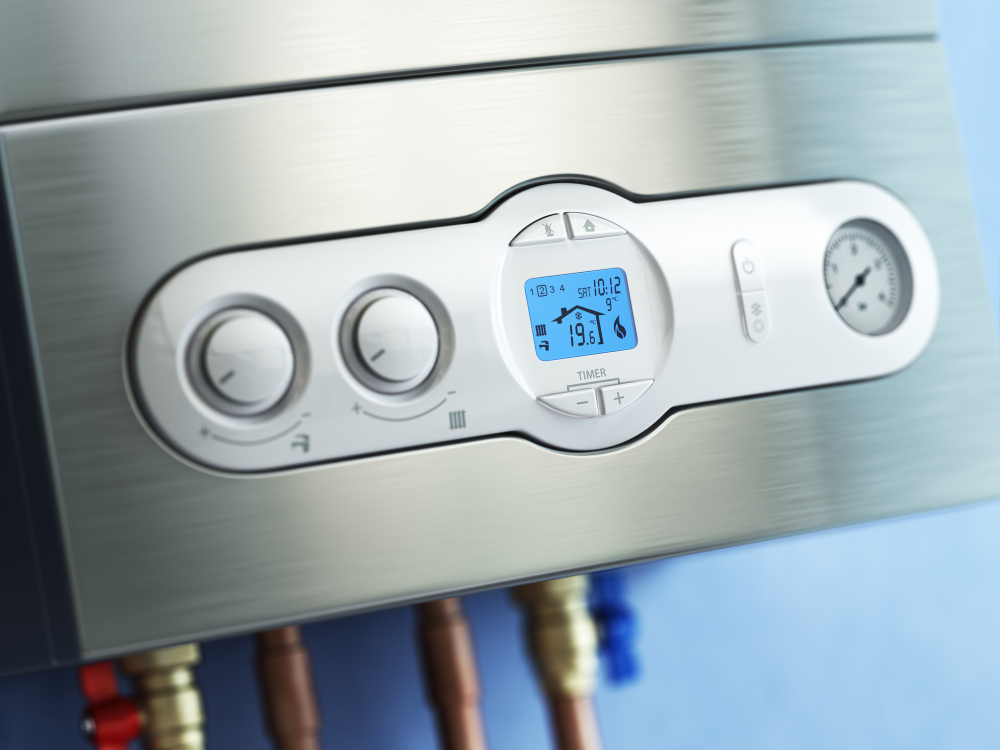A gas hot water system is a water heater that uses natural gas or propane as its fuel source to heat water. It works by burning the gas in a combustion chamber, which then heats a heat exchanger. The heat exchanger transfers the heat to the water, which then flows through the pipes and into your home.
Types of Gas Hot Water Systems
There are two main types of gas hot water systems: storage systems and continuous flow systems.
Storage Systems: A storage system heats the water and stores it in a tank until it’s needed. These systems come in a range of sizes, from small tanks that hold 25-50 litres of water to larger tanks that hold up to 400 litres. They are suitable for households with multiple bathrooms and a high demand for hot water.
Continuous Flow Systems: A continuous flow system heats the water as it flows through the unit, so there’s no need for a storage tank. These systems are more compact than storage systems and are suitable for smaller households with lower hot water demands.
Advantages of Gas Hot Water Systems
Energy Efficiency: Gas hot water systems are more energy-efficient than electric systems, as they use less energy to heat the same amount of water. This means lower energy bills and a reduced carbon footprint.
Fast Heating: Gas hot water systems heat water faster than electric systems, so you don’t have to wait as long for hot water to be available.
Reliable: Gas hot water systems are known for their reliability and longevity. With proper maintenance, they can last for many years.
Cost-effective: Gas hot water systems are more cost-effective than electric systems, as natural gas is generally cheaper than electricity.
Suitable for Cold Climates: Gas hot water systems are more effective in cold climates, as they can heat water more efficiently in low temperatures.
Disadvantages of Gas Hot Water Systems
Upfront Cost: Gas hot water systems can be more expensive to install than electric systems, as they require a gas line to be installed.
Safety Concerns: Gas hot water systems can pose a safety risk if not installed and maintained properly. It’s important to have a licensed professional install and service your gas hot water system.
Carbon Monoxide Emissions: Gas hot water systems produce carbon monoxide when they burn gas, which can be dangerous if not properly vented. It’s important to have your gas hot water system checked regularly to ensure it’s functioning properly.
Limited Hot Water Supply: Storage systems can run out of hot water if the demand is high, which can be inconvenient for households with high hot water needs.
Choosing the Right Gas Hot Water System for Your Home
When choosing a gas hot water system for your home, there are several factors to consider:
Hot Water Demand: Consider the number of people in your household and their hot water needs. If you have a larger household with multiple bathrooms, a storage system may be the better option.
Efficiency: Look for a gas hot water system with a high energy efficiency rating to save money on your energy bills.
Size: Choose a gas hot water system that’s the right size for your household. A system that’s too small won’t meet your hot water needs, while a system that’s too large will waste energy and money.
Cost: Consider the upfront cost of the system, as well as the ongoing maintenance and operating costs.
Safety: Make sure to choose a gas hot water system that meets all safety requirements and have it installed and serviced by a licensed professional.
FAQ:
How do gas hot water systems work?
Gas hot water systems work by burning natural gas or propane in a combustion chamber, which then heats a heat exchanger. The heat exchanger transfers the heat to the water, which then flows through the pipes and into your home.
Are gas hot water systems energy-efficient?
Yes, gas hot water systems are more energy-efficient than electric systems, as they use less energy to heat the same amount of water.
Are gas hot water systems safe?
Gas hot water systems can be safe if installed and maintained properly by a licensed professional. It’s important to have your system checked regularly to ensure it’s functioning properly and not producing carbon monoxide.
How long do gas hot water systems last?
Gas hot water systems can last for many years with proper maintenance. The lifespan can vary depending on the brand, model, and usage.
Conclusion
Gas hot water systems are a popular and efficient option for heating water in your home. They offer fast heating, energy efficiency, and cost-effectiveness, making them a great choice for many households. However, they do come with some disadvantages, such as upfront cost and safety concerns, that should be considered before making a purchase. By taking into account your hot water demand, efficiency, size, cost, and safety, you can choose the right gas hot water system for your home.
